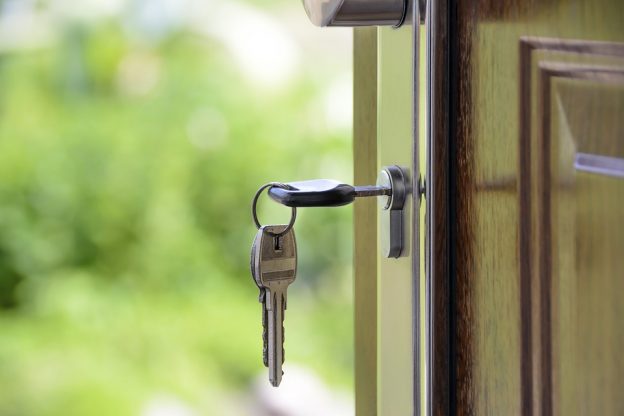Congratulations! You’ve made the decision to buy a home. You’ve got an exciting journey ahead of you. We know applying for your first home loan and navigating the housing market can be a bit scary but we at Coldwell Banker Berger Real Estate want to be with you every step of the way.
Your mortgage loan originator can answer any questions you may have along the way. In the meantime, here’s some practical advice to get you started on the right path to buying your first home.
First, let’s take a look at the different mortgage types. Choosing the right mortgage type is key in the home-buying process.
Home Loan Types
As a borrower, one of your first choices is whether you want a fixed-rate or an adjustable-rate mortgage loan. All loans fit into one of these two categories, or a combination “hybrid” category. Here’s the primary difference between the two types:
1. Fixed rate mortgage: is a loan in which the interest rate on the note will remain the same throughout the entire term, as opposed to mortgages in which the interest rate may adjust or “float”. Generally, fixed rate mortgages come in 10, 15, or 30 year terms, and are the most popular mortgage type. Over 90% of United States home mortgages are FRM’s.
2. Adjustable rate mortgage (ARM):is just that. After the initial “fixed” period, the rate will change and adjust on a specified schedule. Considered riskier than the fixed rate mortgage, an ARM payment can fluctuate significantly. The reward for taking such a risk is an initial rate below the 30-year fixed rate. A one-year ARM is a thirty year loan in which your monthly payment, and the rate itself, changes on the loan anniversary date each year.
Applying for a Home Loan
Get pre approved: Mortgage prequalification is an assessment of whether your debt-to-income ratio fits mortgage guidelines and provides an estimate of the amount you may be able to borrow.
Your Mortgage Pre Approval Checklist
Getting prequalified is easy and convenient. Here’s what you will need:
- Your name (and any other buyers’ names)
- Your current address
- Estimated annual household income
- Estimated monthly household debt expenses
After reviewing your completed loan application, the lender can give you a pre approval. This pre approval will come in the form of a written letter that confirms the price of home you can purchase. Prequalification is optional, but it’s a helpful step in the process of buying your home.
Complete a full mortgage loan application: That’s right, after the preapproval you will fill out the real deal. Keep in mind, this is a partial list; your mortgage loan originator can tell you about any additional requirements.
- Residential History: Your residential address for the past two years Landlord names and addresses for the last two years, if you rented during that time
- Employment & Income History: Paycheck stubs from the last 30 days showing your year-to-date earnings, W-2 or I-9 tax forms for the past two year.
- Personal Assets: Bank account statements from the two most recent months for all checking and savings accounts
- Other asset statements: from the past two months for any CDs, IRAs, stocks, bonds or other securities you intend to use for your down payment
- Current real estate holdings: including property address, current market value, mortgage lender’s name and address, loan account number, balance and monthly payment
- Personal Debt: A list of any new monthly debts not listed on your credit report (auto loans, student loans, mortgage loans, credit cards, etc.), including creditor name, address, account number, minimum monthly payment amount and outstanding balance on each account
- Credit: Your credit will be reviewed when receiving financing
Additional documents may be required at your mortgage closing but as your real estate agent, we can work together with your loan originator to let you know which documents will be needed.
Processing: Your home mortgage specialist collects the necessary financial documents to process your loan. The property is appraised to determine its fair market value.
Receiving approval: The lender will review your application and financial information to make their lending decision. If your application is declined, they may recommend steps you can take in order to obtain financing.
Pre-closing: During this phase of the process, which is sometimes referred to as “loan settlement,” your home mortgage consultant will work with you to secure any required title insurance and real estate documents to protect against other parties claiming ownership of the property.
Closing date: The closing date is the day and time when all of the final mortgage documents are signed and all necessary payments are transferred to complete the purchase of your new home.
The closing date is the last step in the home-buying process. It happens in a meeting between a combination of the buyer, the buyer’s, the seller, the seller’s and a closing agent. The closing agent is either an attorney or a representative from the title company which manages the home’s ownership paperwork.
Are you ready to apply for a home loan? Our trusted team of realtors is ready to help you through the process. Contact us today to get started.



